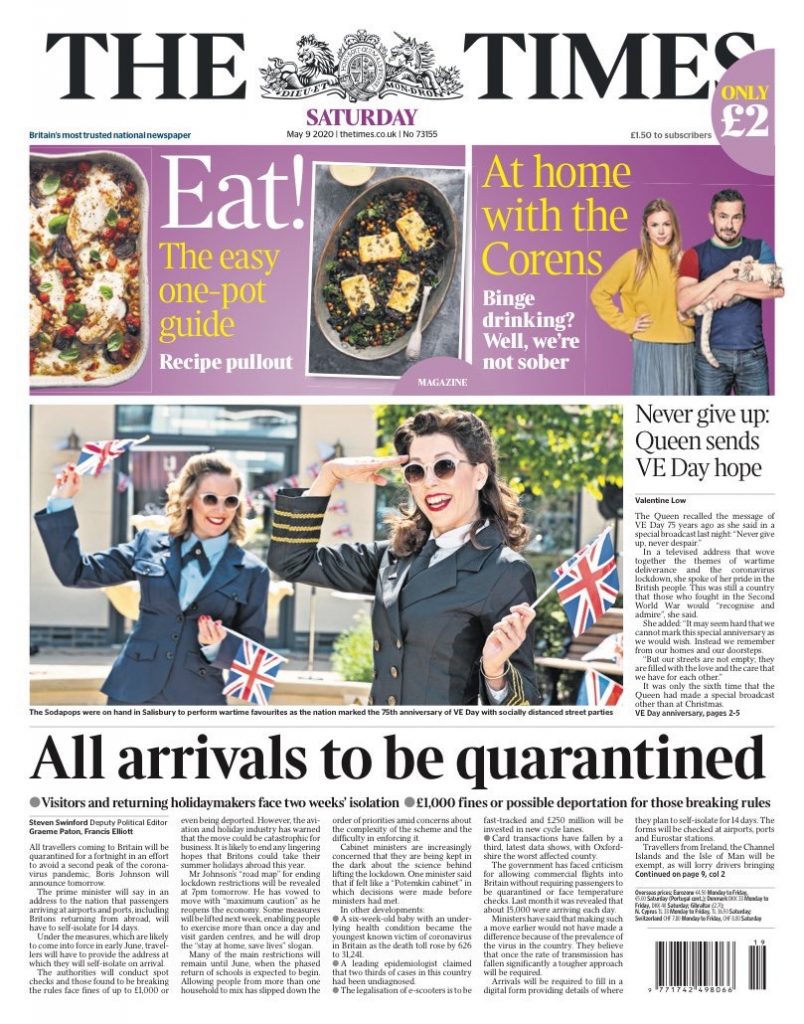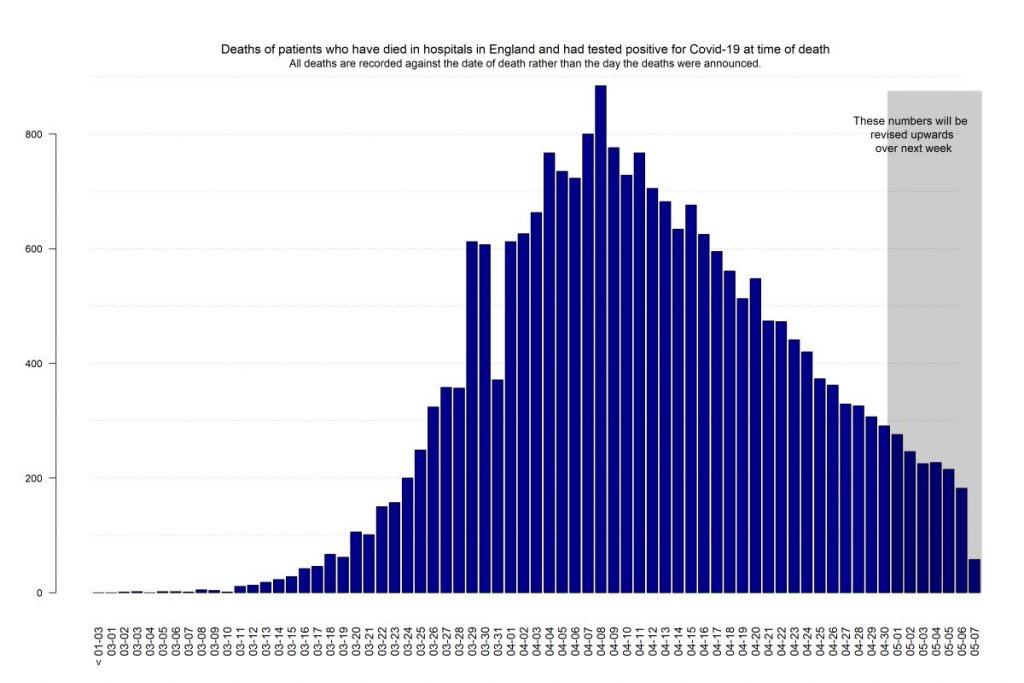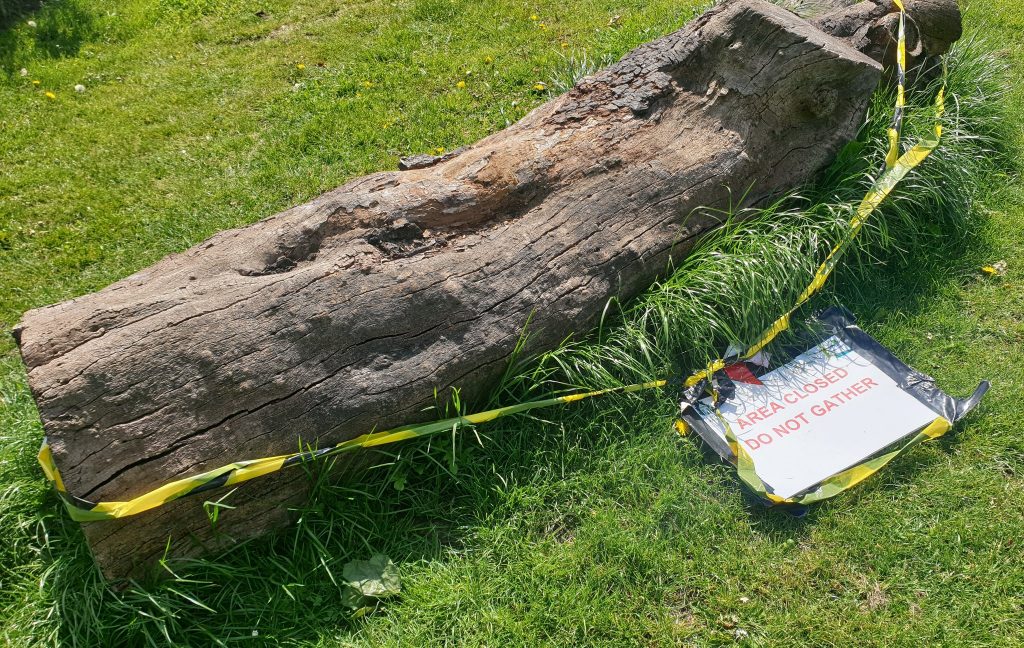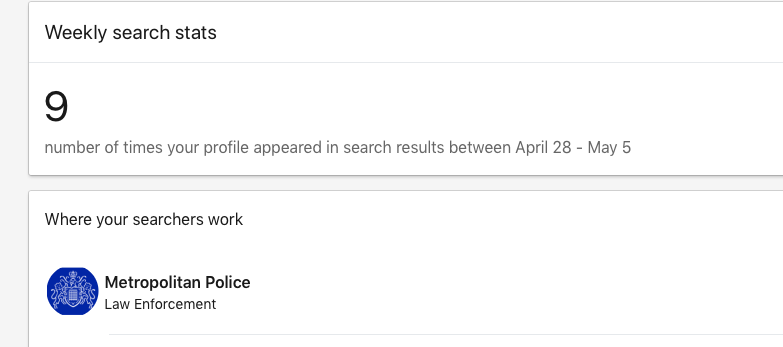
The Times today leads with the story that the Government is planning to quarantine all travellers coming to Britain for two weeks. Under the new measures, likely to come into force in early June, travellers will be asked to provide an address at which they’ll self-isolate for 14 days, with spot checks and fines of up to £1,000 for those who don’t comply.
Needless to say, the aviation industry isn’t happy abut this and nor is the travel industry. Airlines UK, which represents British Airways, EasyJet and others, says the proposal will “effectively kill international travel to and from the UK, and cause immeasurable damage to the aviation industry and wider UK economy”. It added: “Nobody is going to go on holiday if they’re not able to resume normal life for 14 days, and business travel would be severely restricted.”
Isn’t this a case of closing the barn door after the horse has bolted? According to Sir Patrick Vallance, Chief Scientific Advisor to the UK Government, 6.6 million Brits might already be infected. Screening arrivals into British airports and ports, and quarantining those with a temperature, would have made much more sense back in January. Similar policies were adopted in those Southeast Asian countries that are the success stories of this pandemic, such as Thailand, which introduced airport temperature screenings on January 3rd. Had Britain followed suit back then, it might have nipped the problem in the bud.
But we should hesitate before blaming the Government for this oversight. The Department of Health and Social Care asked the Newly Emerging Respiratory Virus Advisory Group (NERVTAG) to hold a meeting to consider the need for port-of entry screening in January and one was duly convened on January 13th chaired by Peter Horby, an Oxford professor with links to the World Health Organisation. At that point, seven other countries had introduced temperature screening at airports for visitors from Wuhan, the centre of the viral outbreak in Hubei. The NERVTAG recommendation was that there would be no point in doing this if exit screening at Wuhan airports was already taking place, although they had no evidence it was.
At the next NERVTAG meeting on January 21st, this one attended by Chris Witty, the Chief Medical Officer of Engalnd, and his deputy Jonathan Van-Tam, the boffins were asked to reconsider the question, but again they passed the buck to the Chinese authorities. By now, human-to-human transmission had been confirmed, i.e. China’s attempt to cover-up the outbreak had been exposed and greater doubt should have been cast on any information coming out of the Communist dictatorship. Nonetheless, NERVTAG’s response was the same:
Neil Ferguson noted that from the modelling perspective, with exit screening in place in China, effectiveness of port-of-entry screening in the UK would be low and potentially only detect those who were not sick before boarding but became sick during the flight. NERVTAG felt there was a lack of clarity on the exit screening process in Wuhan, although it was thought that this process would be robust, and statements had been released by Chinese authorities about stopping febrile passengers from travelling. However, as noted, there were no data on the implementation of this programme.
Minutes of the NERVTAG Wuhan Novel Coronavirus Second Meeting: January 21st 2020
A lack of clarity on the exit screening process in Wuhan?!? You can say that again. As I’ve flagged up before, the Chinese authorities cut off travel from Hubei to the rest of China on January 23rd, two days after this NERVTAG meeting, but not from Hubei to the rest of the world, including the UK. If the exit screening process in Wuhan was as “robust” as the boffins thought – if the Chinese authorities really were “stopping febrile passengers from travelling” – why was the process not good enough to prevent infection spreading to the rest of the country?
I’m basing all this on the minutes of the NERVTAG meetings which are available online here. (Hat tip to a reader who flagged them up and went through them for me.) Could some BBC journalists start looking into this as well please? Like Deborah Cohen, who put together a great package for Newsnight on Thursday? I have no doubt the NERVTAG recommendations will be scrutinised very carefully by the inevitable public inquiry.
Another focus of that inquiry will be the code that sat beneath the model developed by Professor Ferguson and his team at Imperial College. The pseudonymous author of the article I published about the code that attracted so much attention earlier this week has written a follow-up that I’ve published today. The reason he’s revisited the subject is because an enterprising coder realised they could unexpectedly recover parts of the original code’s deleted history from GitHub, meaning we now have an audit log of changes dating back to April 1st. It still isn’t exactly the original code Ferguson ran, but it’s significantly closer. The author, who worked for eight year as a senior engineer at Google, is no more impressed than he was by the more distant version of the code. Read the new piece here.
The Oxford Centre for Evidence-Based Medicine (CEBM), a great source of data about COVID-19, has published a graph plotting the rise and fall of deaths from the virus. This shows the numbers who have died in English hospitals and tested positive for the disease at the time of death up to May 7th:

Note that deaths peaked on April 8th, less than three weeks after the lockdown was imposed on March 23rd. Professor Carl Heneghan, the director of the CEBM, has repeatedly made this point. As he says, it suggests the social distancing measures recommended by the Government on March 16th were more than adequate to suppress infections without the need for more draconian measures.
My colleague Jonathan Kay made a similar point in an article for Quillette yesterday using metadata available from Moovit, an Israeli-based transit-app that maps transport use in dozens of cities around the world. Kay has crunched the numbers for four cities – Seattle, New York City, Miami, and Stockholm – and concluded that people stopped using mass transit at the same time, regardless of whether the city went into lockdown or not. He writes: “Much of the lockdown effect was imposed not by top-down fiat, but through millions of small decisions made every day by civic groups, employers, unions, trade associations, school boards and, most importantly, ordinary people.”
Kay’s conclusion is that sceptics have over-stated the negative effect of lockdowns on economic activity – it would have fallen off a cliff anyway – and says the zealots v sceptics debate is “phoney”. But as I pointed out to Kay, the sceptical case isn’t just that the impact of lockdowns will be economically disastrous – and he doesn’t address the argument that the economic damage will be worse in those countries that locked down. The restrictions have also been disastrous for public health. To give just one example, Professor Karol Sikora, an NHS consultant oncologist, believes there could be 50,000 excess deaths from cancer as a result of routine screenings being suspended during the lockdown in the UK.
Defenders of the status quo will point out that we won’t know for sure whether the lockdowns caused a net loss of life for some time, and the debate will probably go on for years. For instance, we won’t know for decades whether the economic impact of the lockdowns has had a negative effect on mortality, assuming we can disentangle it from the impact of the pandemic (the problem Kay flags up). But the uncertainty surrounding this doesn’t mean governments around the world were right to place their citizens under virtual house arrest. As a classical liberal, I accept that in some circumstances the state is justified in suspending people’s rights if it can show that doing so will save lives – during wartime, for instance. But the burden of proof always falls on those seeking to take away our rights and the case for lockdowns hasn’t even been proved on the balance of probabilities, let alone beyond reasonable doubt.
It’s worth remembering that beneath the statistics about the people likely to die from missing hospital appointments during the lockdown lie thousands of individual human stories. Here’s one a reader sent me today:
I have/had prostate cancer and am meant to have regular blood tests. Told by my local surgery not to go to be tested until lockdown is over! Six weeks overdue I went last week anyway, having cleared it with the hospital who said I should come. Normally there is a very lengthy queue. I walked in to find three nurses and me. What must be going undiagnosed is horrifying.
I’ve referred to Simon Dolan’s legal challenge to the lockdown several times on this site, but there is at least one other challenge, this one being mounted by the English Democrats. The co-chair of the English Democrats, Robin Tilbrook, is also the solicitor acting for it in this matter and you can read the Government’s response to his pre-action letter, as well as Tilbrook’s response to that response, here. And if you feel like donating to support that lawsuit, you can do so here.
In case you need reminding of how draconian the lockdown is, the Manifesto Club has compiled a photographic record of public parks and beauty spots in Britain that have been closed by the authorities since March 24th, as well as first-person accounts by people who’ve been harassed by the police at these locations. Read it and weep.

How much longer can these restrictions on free movement be maintained? I went for a walk along the Thames yesterday and was pleased to see plenty of people ignoring the lockdown: couples walking arm-in-arm on Putney Bridge, children playing football in Fulham Palace, groups of friends drinking either side of Hammersmith Bridge. Several readers have reported similar “green shoots” in their neck of the woods – or, as one put it, “the sand slipping off the side of a sandcastle as the tide comes in”. Here’s a report I received from a reader in the Midlands:
Interesting afternoon here in my village on VE day, in a part of the nation where there never hasn’t been a Conservative MP. Various conversations and interactions. Not one, and I do mean not one, person we talked to is in favour of the lockdown carrying on as it has been. These include people working for the NHS. One is a GP practice manager. Her daughter is a doctor in A&E nearby who reports there are no evening drunks coming in but instead they have an elevation in overdose cases. Another is a manager of a gynaecological unit in an East Midlands town – she reports there has been a small but detectable rise in stillbirths since lockdown began.
Of course, there are some benefits to the lockdown, as the writer Harriet Sergeant reminds us on Twitter: “My local heroin dealer has decided lockdown is over. He’s back on the bench outside my house. Customers come and go. But now I know how to get a police response – report him for social distancing.”
And it isn’t just the British police who are zealously enforcing the rules. Police officers in Laredo, Texas are straining every sinew to keep the city’s residents safe. The city’s Covid-19 Taskforce Enforcement arrested Ana Isabel Castro-Garcia and Brenda Stephany Mata and charged them with violation of emergency management plans after they caught them running underground nail-and-eyebrow salons at their homes. With heroic disregard for their own safety, officers disguised themselves as regular customers and scheduled appointments for nail and eyelash services and then took the dangerous criminals in to custody. KGNS News has the story.
In Singapore, by contrast, there’s no need for police officers to enforce social distancing rules – robots are more than capable of doing the job. Take a look at this YouTube video of a four-legged robot patrolling Bishan-Ang Mo Kio Park. (The Straits Times has more.) At present, all the robodog does is broadcast social distancing propaganda and take photographs of people breaking the rules. But how long before it’s equipped with more persuasive tools? I’m reminded of this scene in RoboCop in which the pampered executives of Omni Consumer Products are introduced to ED-209, the latest enforcement droid. Warning: contains scenes some readers may find distressing.

Meanwhile, back in Blighty, police are searching the social media profiles of those who dare to criticise their Gestapo-like behaviour. I was contacted by a reader who has been very critical of police over-reach on Twitter. He saw a Tweet from another sceptic complaining the police had checked his profile on LinkedIn and thought, “That can’t possibly be true. Surely, they’ve got more urgent maters to attend to?” He then checked his own LinkedIn profile and found this:

Someone who must be in the police’s cross-hairs by now is Dr John Lee, a former consultant pathologist for the NHS. He has compiled a list of 10 reasons to end the lockdown for the Spectator. Dr Lee, a retired professor of pathology, was one of the first senior medics to question the wisdom of locking up the entire country. His 10 reasons are:
- You cannot understand the significance of this virus simply by looking at the raw death figures
- The policy response to the virus has been driven by modelling of Covid – not other factors
- We don’t know if lockdown is working
- We should ease the lockdown to save lives
- Lockdown is not sustainable
- Lockdown directly harms those most likely to be affected by coronavirus
- Lockdown directly harms those who will be largely unaffected by coronavirus
- The health service has not been overwhelmed nor likely to be
- The virus is almost certainly not a constant threat
- People can be trusted to behave sensibly
Dr Lee also has an article in today’s Mail making the same argument and it’s worth reminding ourselves that his views are by no means uncommon in the medical establishment. I was pleased to see this letter from a biology professor in today’s Telegraph:
SIR – Science proceeds by putting forward conjectures or hypotheses, collecting empirical data to test them, and accepting, rejecting or modifying them on that basis. The implication is that our scientific understanding is not fixed, but changes as evidence accumulates.
In the United Kingdom the initial decision to impose lockdown to control the effects of COVID-19 was based on a conjecture or model that has now been tested against real data and is found to be wanting.
The model predicts that, under the sustainable public health measures taken by Sweden and in the absence of lockdown, there should now be 60,000 deaths in that country from Covid-19, whereas there are currently only about 3,000 there, with deaths now well past the peak and declining.
Given the failure of the model to make useful predictions, there is no justification for using it to guide future policy. In contrast, large amounts of empirical evidence have now been gathered which demonstrate that for a very large fraction of the population the virus poses a very low risk, while a small fraction – whose immune systems are compromised – are vulnerable.
Therefore, to follow the science, an appropriate policy is the targeted shielding of those who choose to be classified as vulnerable, rigorous screening of their carers to prevent transfer of infection to the vulnerable sector, and release from lockdown for those outside these categories.
Continuing the blanket lockdown cannot be justified on the basis that it is “following the science”.
Professor Richard Ennos, Edinburgh
I have written a comment piece in today’s Telegraph asking what happened to our famous stiff upper lip. Forget about the bulldog spirit. We seem to have become a nation of scaredy-cats. Readers of this site will already be familiar with my views about the supine acquiescence of the British people to having their rights curtailed, but here’s a quote in case you need reminding:
How did it come to this? We’re supposed to be a nation of indomitable yeoman who guard our ancient liberties more fiercely than any other people on earth. These islands, which haven’t been invaded since 1066, are the birthplace of liberal democracy.
Yesterday, we celebrated the 75th anniversary of the day the Allies formally accepted the unconditional surrender of Nazi Germany after more than 350,000 British soldiers gave their lives to protect this country from tyranny. Yet when the Government enacted a statutory instrument on March 26th that suspended the rights of every freeborn Englishman, some of them dating back to the 12th Century, we didn’t let out so much as a squeak of protest. Probably just as well because protests of more than 100 people are now illegal.
I got a great response from a reader – of the Telegraph, not Lockdown Sceptics, although I suspect she would like this site too. Here are the first three paragraphs:
I have never in my life written to a columnist to berate or applaud something they have written. But after over six weeks of pointless and frustrating lockdown, and an inability to read anything on social media or newspapers for fear of punching a tree, I read your article today in the Telegraph.
Thank you. For voicing everything I want to but don’t have a platform to. We are small business owners who have had no financial help and expect none, and are struggling like everyone else. We have young kids who are being damaged by this prison they live in, and struggling with maintaining the hope that they feel is being snatched from them, despite our protestations. We are all caged in our homes, and my strong belief in liberty is now seen as a badge of defiance and shame. I resent being told what to do by anybody, generally, but I will always respect authority and knowledge. I voted for Boris and Brexit in that belief. But now I do feel that my respect for that authority waning, as the world becomes infantilised and patronising. I can’t take my dog for more than one walk a day or sit on a fallen tree to take in the view without people feeling they have to point and tut. I despair of the example this all sets for the new generation that fear everything, and take pride in nothing except their own social media profiles; who have fallen blindly behind ‘science’ in the form of a randy, fear-spreading, and inept epidemiologist professor.
I idolise the Queen, but she was wrong – I think my wildly brave grandfather and those of his generation would be turning in their graves at the lily-livered modern Britishness, and despair or those neighbours who curtain twitch as I leave the house. I love the NHS, having worked in it for most of my life, but I detest the clapping when I recall that I had no respect shown to me by most people (who are now clapping) when I turned up as a paramedic to treat them. And does the NHS deserve all of this? Well, yes, those in Covid wards do of course. But, my God, there are plenty of complete idiots in the health service who are now relishing their deification, despite never earning it. And many are actually not even working at all, as we have scared the life out of everyone to go to hospital or the GP. I see selfish and self-absorbed self importance all about, and I truly don’t know how I explain this period of history to my children without embarrassment at how my nation has behaved. Suddenly the BBC treats the part-time bin men and supermarket workers as “heroes” and worth more than my young kids – we need only to hear the BBC news that speeding drivers at the moment “may even kill a key worker going to their vital work” to see this view. And why does everyone want now to identify as a key worker? Please…..
Victor David Hanson, writing in the National Review, argues that the divide between lockdown sceptics and zealots reflects the ancient conflict between empiricism and abstraction — between common sense and abstract science. He may be on to something, as this story in the Telegraph about front-line doctors in New York illustrates. State governor Andrew Cuomo favours a phased exit from the lockdown, with life not returning to normal for months, whereas the doctors fighting the disease think the battle has been won, and the fact that the state’s hospitals are now half-empty means people who need urgent medical treatment aren’t getting it. “It’s not often I agree with Trump, but I think that we should open up on May 15,” says Dr Samir Farhat, who runs the emergency room at New York Community Hospital as well as working as a physician at Mount Sinai Brooklyn.
In UnHerd, Douglas Murray highlights the idiocy of those trying to censor what people are and aren’t allowed to say about the virus on social media. Includes an absolute gem from the website of the Institute for Strategy Dialogue (ISD) which describes the hypothesis that SARS-CoV-2 originated in the Wuhan Institute of Virology, as opposed to the Wuhan wet market, as a “right-wing conspiracy theory”, claiming “there is absolutely no scientific evidence that the genome is man-made”. Evidently, the ISD missed this podcast with Dr Luc Montagnier, winner of the 2008 Nobel Prize for Medicine, who concludes the virus could not have evolved naturally and must have been created in a laboratory. As Murray points out, this supposedly crackpot theory is being investigated by a consortium of Western intelligence agencies, as was revealed in the leaked “five eyes” document. (Proud to say Douglas Murray is a director of the Free Speech Union.)

A round-up of all the stories I’ve noticed, or which have been been brought to my attention, in the last 24 hours:
- ‘Graph Lover Doesn’t Want This Shit To End‘ – Satirical article in the Beetota Advocate about a man who suffers from graphodisiac, someone who gets sexually aroused by graphs, and is currently having the time of his life
- ‘WHO ate all the pangolins?‘ – Article by Henry Williams in Spectator USA abut the World Health Organisation’s tacit defence of Traditional Chinese Medicine, including eating Pangolins
- ‘Don’t sacrifice freedom at the altar of safety‘ – Frank Furedi, author of How Fear Works, says we’ve made a terrible mistake in surrendering our freedom in return for safety
- ‘This is international hysteria‘ – Brendan O’Neill interviews Spectator columnist Lionel Shriver for his Spiked podcast. Lionel has been a lockdown sceptic from day one
- ‘Nearly half of world’s workers risk losing their livelihoods over COVID-19 lockdowns‘ – euronews report on the warning of the International Labour Organisation that half of the world’s workforce risk losing their livelihoods as a result of the lockdowns
- ‘Lockdown fanatics scare me far more than Covid-19‘ – Brendan O’Neil’s latest for Spiked
- ‘The underground doctors’ movement questioning the use of ventilators‘ – Matt Strauss, a former ICU doctor, on the courageous doctors who’ve risked their careers to speak out about the risks of treating COVID-19 patients with ventilators
- ‘Coronavirus pandemic may lead to 75,000 “deaths of despair” from suicide, drug and alcohol abuse, study says‘ – CBS News reports that deaths from suicide, drug and alcohol abuse as a result of the lockdown may eclipse the Covid death toll in the US
- ‘The Most Monumental Social Engineering and Ideological Transshipment Effort in History‘ – Useful compendium of the evidence against lockdowns from the American Society for the Defense of Tradition, Family and Property
- ‘Sorry, but we can’t always be safe‘ – Richard Harper argues that we should abandon the fantasy that we can ever be completely safe
- ‘Europe’s Communists Are Trying to Blame COVID-19 on Markets and “Neoliberalism”‘ – Not an article in the Onion or the Babylon Bee, but a piece from the Mises institute flagging up a genuine theory
- ‘The Economic Lockdown Catastrophe‘ – The editorial board of the Wall St Journal responds to the news that 20.5 million Americans have lost their jobs since the beginning of the crisis
- ‘Ferguson’s Fall, Imperfect Polling and Messy Modelling‘ – Excellent podcast from Nic and Andrew Elliott at Sounding Board
Thanks as always to those who made a donation in the last 24 hours to pay for the upkeep of the site. If you feel like donating, you can do so by clicking here. (Every little helps!) And if you want to flag up any stories or links I should include in tomorrow’s update, you can email me here.
No songs today, but I’ll leave you with a quote from my piece in today’s Telegraph:
Let’s hope Boris screws his courage to the sticking place tomorrow and announces an end to this authoritarian nightmare. This is a country in which every man’s home is supposed to be his castle, not his prison.











To join in with the discussion please make a donation to The Daily Sceptic.
Profanity and abuse will be removed and may lead to a permanent ban.